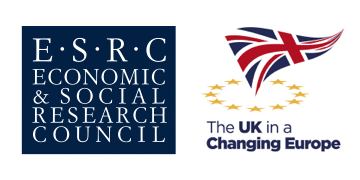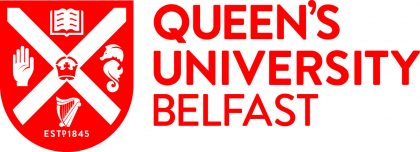Women’s Rights and Brexit
By Emma Patterson-Bennett
The Brexit LawNI Project focuses on the following 6 key areas: the Northern Ireland peace process ; North-South relations; border controls and free movement in and between Northern Ireland, the Republic of Ireland and Britain; xenophobia and racism in Northern Ireland; the impact on socio-economic rights; and wider human rights and equality issues.
Although gender is not a theme on its own, it inextricably weaves throughout the six themes. This blog will particularly discuss women in relation to their socio economic rights, human rights and equality – or inequality as the case more often is – and the UK exit from the EU.
Brexit will impact on social and economic rights in a number of ways, the preliminary findings of the BrexitLawNI project can be found here, but these range from workers’ rights, issues around travel for work, health and education in the Common Travel Area, funding and equality issues such as maternity and paternity leave. This article aims to demonstrate how women will be adversely impacted.
Statistics show that women have been impacted more than men with the changes to socio economic conditions such as welfare, austerity and cuts to public spending in Northern Ireland over the last number of years. For more information on this you can read the WRDA report – ‘Women on the Cutting Edge.’
In a statement released last week by the Equality and Human Rights Commission in GB, they found that women will suffer a £940 annual loss this year (more than double the loss for men). David Isaac, the Chair of the Commission, which is responsible for making recommendations to the government on the compatibility of policy and legislation with equality and human rights standards, warned of a ‘bleak future’ and has urged the Government to commit to undertaking cumulative impact assessments of all tax and social security policies. Find the Independent report and statement here.
This is just one statistic that highlights how much women’s socio economic rights are disproportionately impacted. As both reports above show, women are bearing the brunt of socio economic cuts in all their forms, this can range from changes to welfare and benefits to the stretching of public services that are used most often by women, women are also more likely to take on part time, low paid, precarious contracted work as this often fits best around family life.
In any situation where political agreements have to be made, we know that too often women’s rights are one of the first rights to be taken off the negotiating table or never reach the table at all. When there is political unease it is the so-called ‘big issues’ that dominate. I very much doubt women’s rights in any form have been front and centre to the current political negotiations in Northern Ireland and this can evidenced by the two most recent agreements; The Stormont House Agreement and A Fresh Start, both have only a few lines committed to women. The Good Friday Agreement on the other hand did have built in rights and safeguards for women that were hard fought for; such as ‘Women’s full and equal political participation’ and in the section, ‘economic, social and cultural issues’ to address advancement of women in public life.
Over the last few years in particular we have what can only be described as an attack on women’s rights through the many social welfare cuts and austerity measures; often when looking at just one area alone it may not seem that this is an attack on women, but when you look at the few I mention below it starts to show a pattern of disregard for women’s inequality and human rights, of which socio economic rights are so important.
We have had the introduction of Universal Credit and had to campaign for women to be able to have child benefit paid directly to their bank accounts. This was something the women’s movement thought had been an issue that was over years ago, but with the introduction of a new ‘streamlined’ welfare system, women were told that the ‘head of the household’ would be receiving the welfare payment into one account. Thankfully this decision was reversed.
We have also had the introduction of the bedroom tax (this currently has some mitigations in NI for the next 2 years), which could affect women who have to leave a family home due to domestic violence and become ‘new claimants’ through no fault of their own. The women will be worried about finding new fit for purpose accommodation within the strict guidelines.
Just this year in April 2017 we had the introduction of the 2 child cap on child tax credits: a woman receives no money for a third child unless she can fit into one of the exceptional cases – one of these being if she can prove that she has been the victim of a rape. This mitigation raises a number of human rights, equality and discrimination issues, as well being an attack on women’s socio economic rights and children’s rights. It also disproportionately affects those living in poverty.
There are many reasons why this affects Northern Ireland in different ways that GB. For example, Section 5(1) of the Criminal Law (Northern Ireland) Act mandates that all serious crimes must be reported to the police. Therefore, the implementation of this policy has significantly different consequences for women in Northern Ireland, compared to the rest of the UK, as any rape should therefore be reported to the police by the third party assessor or by the woman herself. Women also have less access to reproductive rights than in the rest of the UK, and Northern Ireland has the highest percentage of households with children compared with the rest of the UK. For more information see here.
There have also been various cuts to public services in the last few years, which has taken place under the backdrop of the lack of any significant anti poverty strategy as committed for in section 28(e) of the St Andrews Agreement: to ‘tackle poverty, social exclusion and patterns of deprivation based on objective need.’ Even though CAJ won a Judicial Review against the NI Executive in the summer of 2015, there has been no significant developments since then.
There is also no Gender Equality Strategy for Northern Ireland, even though there was extensive work done by a panel of non government experts and recommendations from the UN CEDAW Committee in 2013. This leaves massive gaps for women in Northern Ireland in areas such as participation in public life, reproductive rights, gender budgeting, economic and social rights and transgender rights. It is also significant to note that Northern Ireland has never had and still does not have any meaningful childcare strategy – one significant barrier to women exercising their socio economic rights. You can find the Equality Coalition response to the last consultation on a childcare strategy here.
As well as this, or maybe because of this, there is also a misunderstanding of what gender equality actually is with women’s groups reporting on meetings where officials have misunderstood their commitment to equality. This therefore results in gender neutral policies that do not adequately address underlying inequality. There should not be a gender neutral domestic and sexual violence strategy under any circumstances, when we have a society that has extensive issues with violence against women, coercive control and rape culture. The inclusion of women in the current Incitement to Hatred laws could provide one way to tackle some of these attitudes to women.
This brings us to a lack of understanding of the use of positive action provided for in the public sector equality duty in Northern Ireland and the lack of enforcement of the public sector equality duty, which adds to the cumulative impact of policies on women.
So, it is inevitable that there is a real and warranted fear that the EU exit could impact all of the concerns mentioned above and make it, if possible, even worse for women and their socio economic status.
The protections that the EU offers are minimum standards for women to be able to participate in society, such as the right to maternity leave including return to work standards and split parental leave, equal pay for equal work, the very recent developments on reporting of and reduction of the gender pay gap and the use of quotas to get women onto boards. The overall inclusion and promotion of women in public and political life is central to EU policy making, see an EU Commission report on Gender Balance and Decision Making here. We have also had directives from the EU to protect the multiple identities that women have including transgender rights and LGB rights. If any of these were to be rolled back or eroded, this would have a devastating effect on women’s equality and human rights, and would impact drastically on how women could take part in society.
The OSCE firmly believe that the economic empowerment of women is one of the most important contributing factors to gender equality, to addressing poverty reduction, and to improving access to services such as health and education.
The OECD also states that increasing the role of women in the economy is part of the solution to the financial and economic crises and critical for economic resilience and growth. However, they acknowledge that at the same time, society needs to be mindful that women are in some contexts bearing the costs of recovering from the crisis, with the loss of jobs, poor working conditions and increasing precariousness. See more here.
Women’s Centres have received funding from the EU through the European Social Fund and EU Peace Money, both of which have been fundamental in keeping women’s centres doors open and empowering grass roots women’s organisation. This EU funding will also be a great loss to those working with women in a community education setting. Getting funding for women’s centres is difficult, with many reporting that it is often challenging to apply for good relations grants as this is seen to be predominantly working with Catholics and Protestants and not what the Equality Coalition would promote as ‘tackling prejudice and promoting understanding.’ If this definition was widely taken on board then it would be much easier for women’s groups to avail of this sort of funding.
In Northern Ireland we have specific legacy issues that affect women; UN security Council Resolution 1325 on women, peace and security does not get applied to NI; and women’s voices in dealing with the legacy of the past are often forgotten, the out workings of these being that we have a high dependency on prescription drugs as a legacy of our conflict. This has a real impact on our current and future health service and on women’s abilities to engage with public and political life and fully access their socio economic rights.
This article has only been able to touch upon socio economic rights, but there will be other issues for women such as the Common Travel Area and movement across borders, and immigration, etc. Women routinely travel between Belfast and Dublin to access prenatal and antenatal healthcare. The women’s movement are also worried about the loss of European Protection Orders for women who may be victims of domestic violence fleeing an abusive partner between Ireland and Northern Ireland, currently this information is shared on a North/South basis.
This all just scratches the surface as there are so many areas in which women are experiencing depreciating rights and there is so much more that could be said in the context of women and the exit from the EU; but, if anything, this article can urge us all working in the area to be mindful of the current attack on women’s rights and the intersection of women’s rights and ‘Brexit’.





